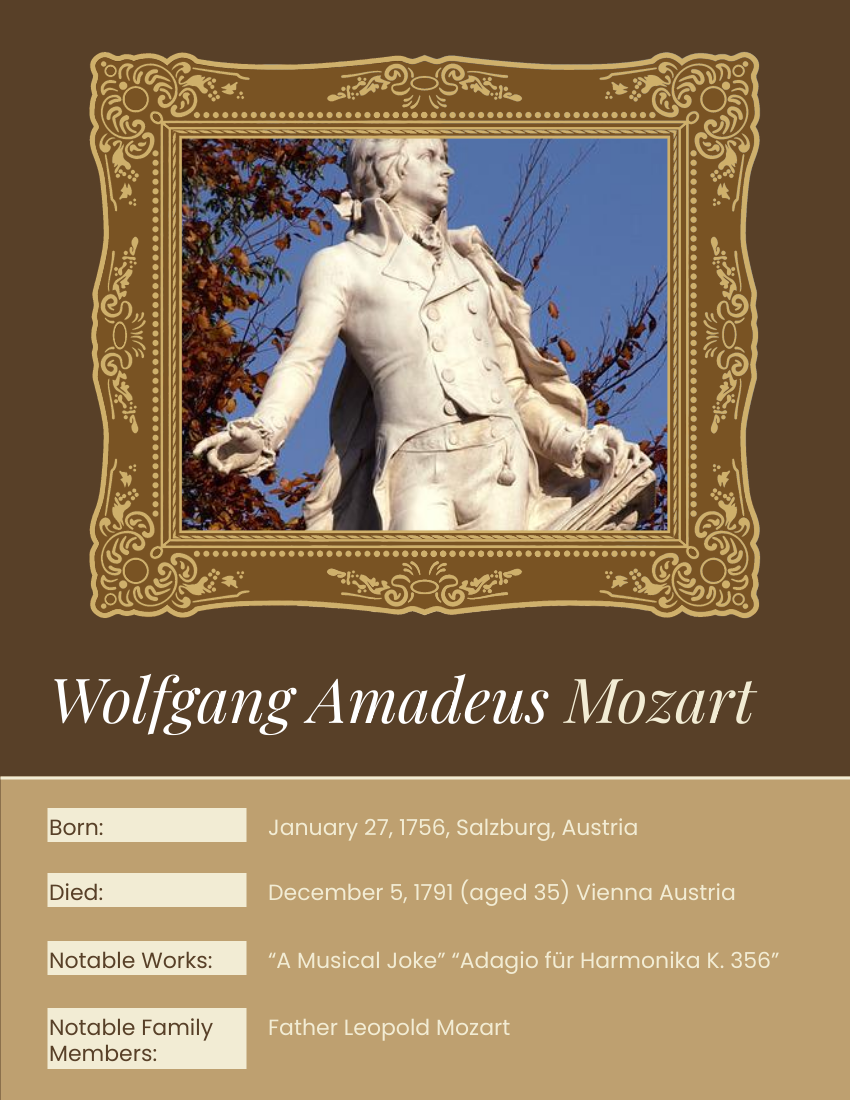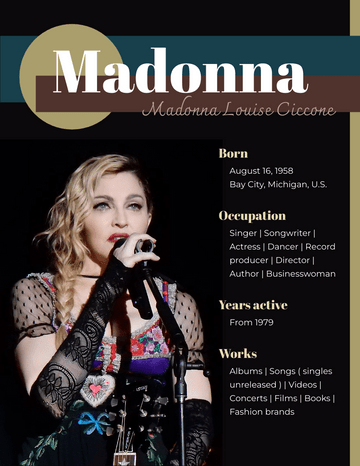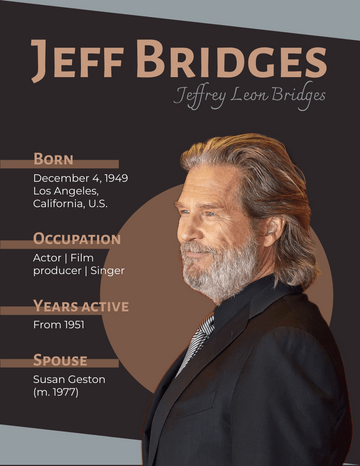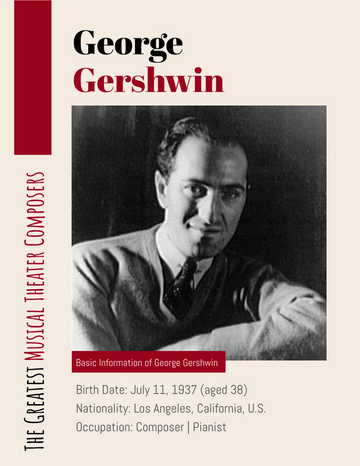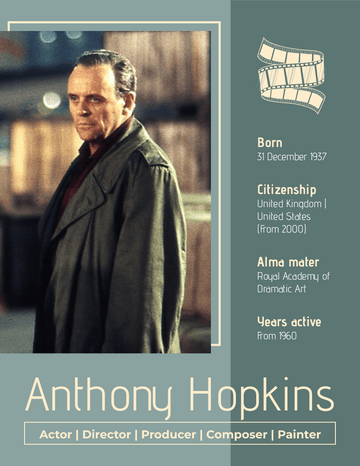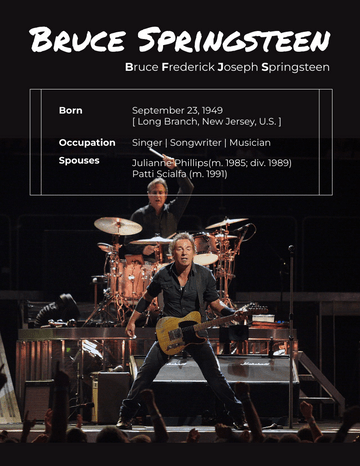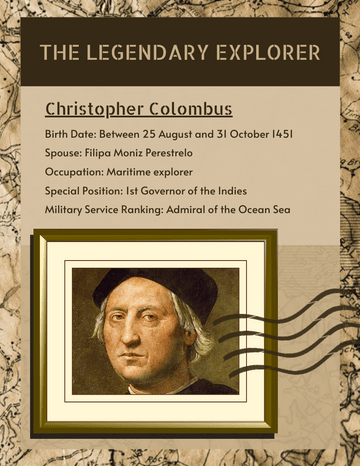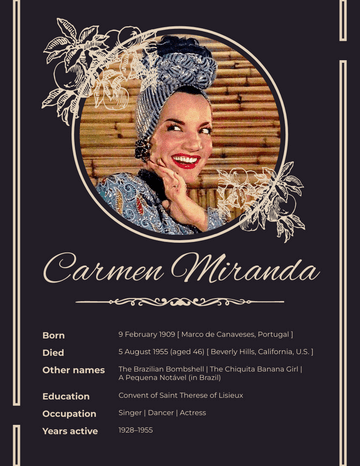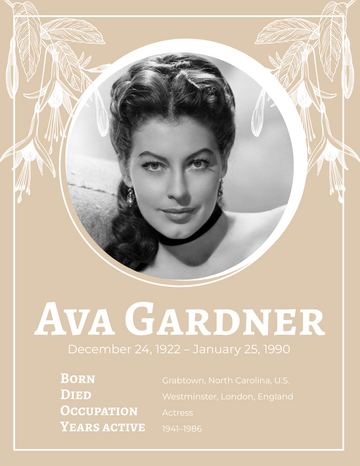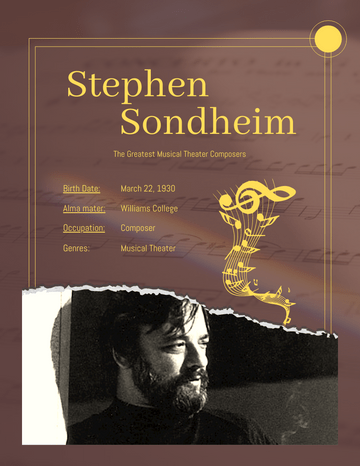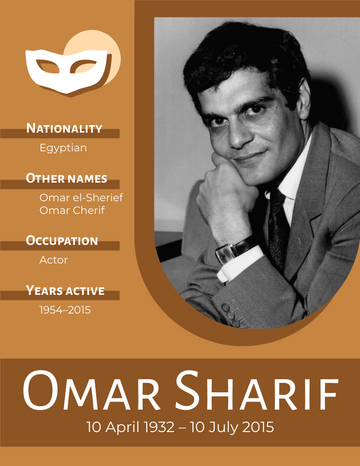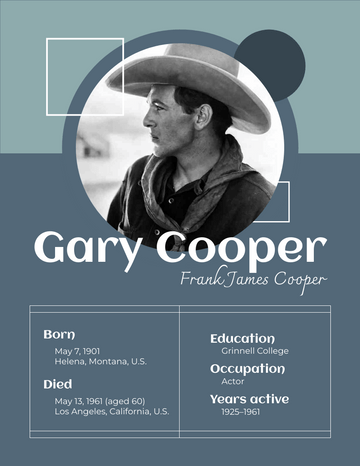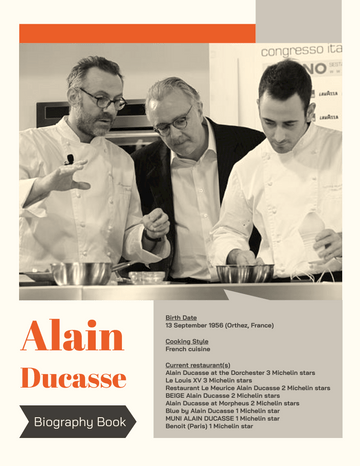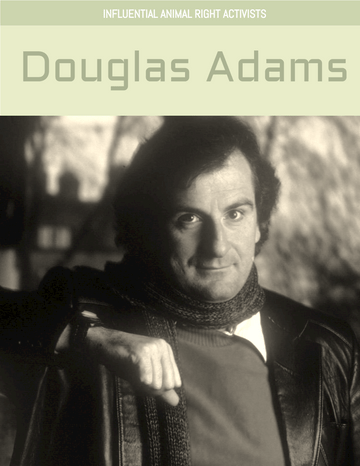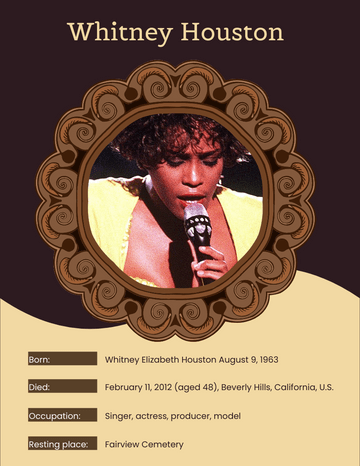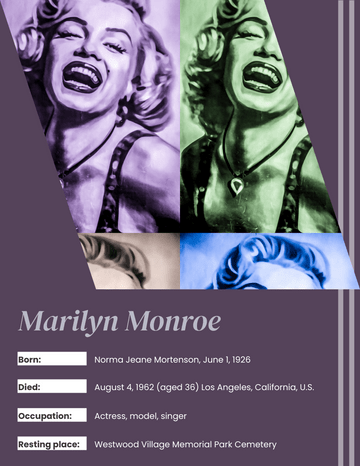Wolfgang Amadeus Mozart
Born: January 27, 1756, Salzburg, Austria
Died: December 5, 1791 (aged 35) Vienna Austria
Notable Works: “A Musical Joke” “Adagio für Harmonika K. 356”
Notable Family Members: Father Leopold Mozart
About Wolfgang Amadeus Mozart
Wolfgang Amadeus Mozart (27 January 1756 – 5 December 1791), baptised as Joannes Chrysostomus Wolfgangus Theophilus Mozart, was a prolific and influential composer of the Classical period. Despite his short life, his rapid pace of composition resulted in more than 800 works of virtually every genre of his time. Many of these compositions are acknowledged as pinnacles of the symphonic, concertante, chamber, operatic, and choral repertoire. Mozart is widely regarded as among the greatest composers in the history of Western music, with his music admired for its "melodic beauty, its formal elegance and its richness of harmony and texture"
Click here to read the flipbook.
Family and childhood
Wolfgang Amadeus Mozart was born on 27 January 1756 to Leopold Mozart (1719–1787) and Anna Maria, née Pertl (1720–1778), at Getreidegasse 9 in Salzburg. Salzburg was the capital of the Archbishopric of Salzburg, an ecclesiastic principality in the Holy Roman Empire (today in Austria).
He was the youngest of seven children, five of whom died in infancy. His elder sister was Maria Anna Mozart (1751–1829), nicknamed "Nannerl". Mozart was baptised the day after his birth, at St. Rupert's Cathedral in Salzburg.
Early years
Mozart's new career in Vienna began well. He often performed as a pianist, notably in a competition before the Emperor with Muzio Clementi on 24 December 1781, and he soon "had established himself as the finest keyboard player in Vienna". He also prospered as a composer, and in 1782 completed the opera Die Entführung aus dem Serail ("The Abduction from the Seraglio"), which premiered on 16 July 1782 and achieved considerable success.
Final illness and death
Mozart fell ill while in Prague for the premiere, on 6 September 1791, of his opera La clemenza di Tito, which was written in that same year on commission for Emperor Leopold II's coronation festivities. He continued his professional functions for some time and conducted the premiere of The Magic Flute on 30 September. His health deteriorated on 20 November, at which point he became bedridden, suffering from swelling, pain, and vomiting. Mozart was nursed in his final days by his wife and her youngest sister, and was attended by the family doctor, Thomas Franz Closset. He was mentally occupied with the task of finishing his Requiem, but the evidence that he dictated passages to his student Franz Xaver Süssmayr is minimal.
